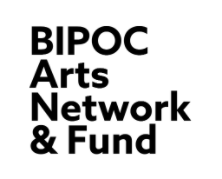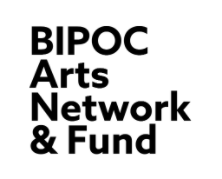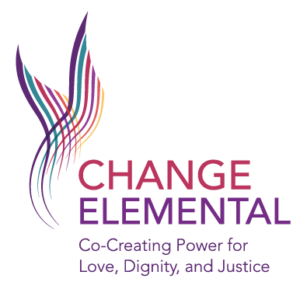Guiding Values and Approach
Coming out of its first phase of grantmaking, BANF embarked on a Learning and Evaluation process to inform its strategy, phase two grantmaking, and a broader set of questions that could impact the future of the BIPOC arts and culture actors in greater Houston and the larger ecosystem of arts and culture organizations in the US.
BANF outlined the following values and approaches for its learning and evaluation:
- Equity-focused;
- Participatory approach; and
- Utilization-focused.
In April of 2022, Change Elemental (was selected to guide this process and Houston consultant and artist, Candice D’Meza was brought into the project to add to the team’s context and experience.
The process was guided by BANF’s values and Change Elemental’s co-creative, community centered approach.

Design Team
This approach centered the learning and evaluation process in the place-based experiences of BIPOC artists and culture workers. To guide this, a six-person Design Team was created, which consisted of:
- Gayle Waden with Third Ward Community Cloth
- Harrison Guy with Urban Souls
- Tony Diaz with Nuestra Palabra: Latino Writers Having Their Say
- Trisha Morales with AAPI Voices
- Brita Blesi with the Houston Endowment
- Sixto Wagan with the BIPOC Arts Network and Fund

Overview of Process
The Design Team worked together from July of 2022 through April of 2023 and focused their efforts on: building relationships and developing guidelines for how the team wanted to work and be together; reflecting on initial learning questions; developing grantee Listening and Learning Session questions; and an emergent learning process about what was shared in the grantee Listening and Learning Sessions.
The team then supported the development of materials to share out the results of the learning and evaluation process. These materials consist of the Learning & Impact section of this website, which includes: creative responses from BANF grantees, graphic illustrations of key contexts, and learnings and strategies moving forward.
Weaving Together the Learnings: Methodology
This website contains the thematic learnings from a number of sources including: 2021 grantmaking guidelines, application materials, and distribution data; background reports and scans conducted during BANF’s first grant cycle; notes from BANF committee conversations; multi-media stories submitted by grantees; the six evaluation design team meetings; many conversations with Sixto Wagan, BANF project director; and themes from seven Listening and Learning Sessions conducted during the Fall of 2022 with grantees from BANF’s first round of grantmaking. The Design Team drafted the key learning questions to bring to the Listening and Learning sessions. Initial key findings, themes, stories, and questions were thematically summarized and shared with the Design Team iteratively and in various forms throughout the process. As a result of their input, materials and stories were refined by the Change Elemental team and shared with BANF as content for the website and a report for those interested in the process. The final web content was curated by Sixto Wagan and Imagina Communications.

Data Analysis and Limitations
The themes should not be read as final, definitive, and/or the sole experiences of grantees.
The Listening and Learning Sessions included 69 grantees of 122 total grantees in phase 1. They were conducted as community conversations, where participants engaged in dialogue, building on what each other were saying. These sessions were facilitated by Change Elemental and Houston consultant and artist, Candice D’Meza. BANF staff participated in the sessions and they were transcribed. Because of the emergent, dialogic, and community building nature of the Listening and Learning sessions, each of the Design Team’s learning questions was not systematically asked of each participant. While rigorously analyzed to understand themes in grantee experience, the themes are not statistically significant. Moreover, since this is analysis of dialogue, the themes shared can not be interpreted as definitive opinions or experiences of each participant, and therefore are not an exhaustive representation of the current conditions, grantmaking impact, or needs going forward. The presence of the BANF team as well as other grantee peers in the sessions, and the non-confidential nature of the conversations, may have also impacted what was shared.
BANF and Change Elemental organized the Listening and Learning sessions, and later analyzed the data, by creating two groups of grantees: 1) Established and Resourced Groups and 2) Emerging Collectives and Fiscally Sponsored Groups. It was determined that this would provide the best insights into the impacts of the first round of grantmaking, which was intended to resource both groups and, in particular, the second group as it is less resourced by philanthropy. There are a number of differentiating characteristics of the grantees including geography, discipline, cultural and ethnic groups served, budget size, and year founded. Sixto Wagan used a combination of the year an organization or collective was founded and knowledge of their resources to create the two groups. He used the year’s 2015/2016 as a rough guidepoint for dividing the grantees because, organizations founded prior to 2015 tend to have 501c3 nonprofit status, previous access to grants, and generally more resources while groups founded after 2016 tend to be emerging collectives, have less access to grants, and generally less resourced. He also used his knowledge of individual grantees resources to refine the groupings. As a result, you will see these two groups referenced along with themes that emerged from each. However, these themes and the groups themselves are not static or mutually exclusive. Further research would be needed to more definitively refine differences between these groups.
Learning & Impact
Current Context
Journey Together
What is Needed
Where We're Going



